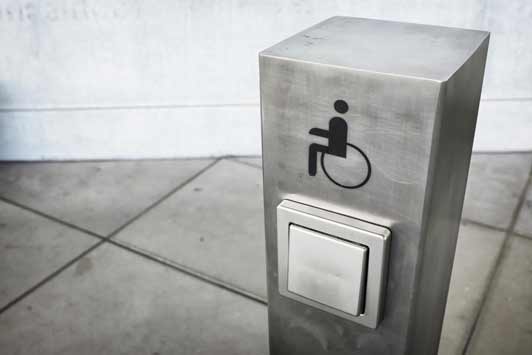Learning a language in immersion is the best way to develop your language skills while enjoying an authentic insight into another culture. At ESL, we believe firmly that no one should be excluded from this language learning experience because of a disability.
A student with a disability may require certain elements in place to ensure the enjoyable and smooth running of a language study trip. Our range of programmes and partner schools ensures that we can offer an attractive range of options for each individual.
The most important thing is to let our team know of any special requirements when booking. There are two important reasons to do this. Firstly, we know our partner schools and their locations intimately, including their facilities for students with disabilities. Our team regularly visit partner schools and can offer genuine inside knowledge about each. Our advice service is free. Secondly, we can ensure that the staff in the destination receive any useful information in advance. This, in turn, means that each student can get the most out of his or her language study trip.
In our brochures and on our websites, each school’s listing states clearly whether the school buildings offer wheelchair access. When looking at language schools for a student with mobility impairment, it is important to remember that standards of facilities can vary around the world, often according to the laws and policies of each country.
But a traditional language school is not the best option for everyone. Among the most versatile programmes we offer are courses “In the Teacher’s home”, where the student lives with the teacher for the duration of the course, studying the language in private courses, eating and exploring the destination together. This is definitely one of the fastest ways to achieve fluency in a language and to focus on specific needs.
There are many benefits to this type of programme, including in-depth insight into local culture and continuous linguistic immersion, which you wouldn’t necessarily get when staying in a shared residence with other international students. Our team tailor the programme to the needs of the student. This means that the course content is chosen according to the student’s interests, level and learning style. It also means that, for example, a student who uses a wheelchair will study with a teacher whose home is laid out for wheelchairs (often, but not always, for a family member).
Courses at the Teacher’s Home are also a strong option for students with a learning disability including, for example, dyslexia, which can make study more difficult in the traditional school system. We know which teachers have experience and expertise in providing tuition to students with a whole variety of disabilities, including bespoke courses for deaf or blind students as well as courses for students with learning difficulties. Again, the most important thing is to let us know of any specific needs so we can design the perfect programme for the individual.
We firmly believe that learning a language in immersion is an enjoyable and enriching experience that should be available to all. To find out more about courses “In the Teacher’s Home” and which destinations are available, check our website. Alternatively, our team would love to speak to you!





What do you think?